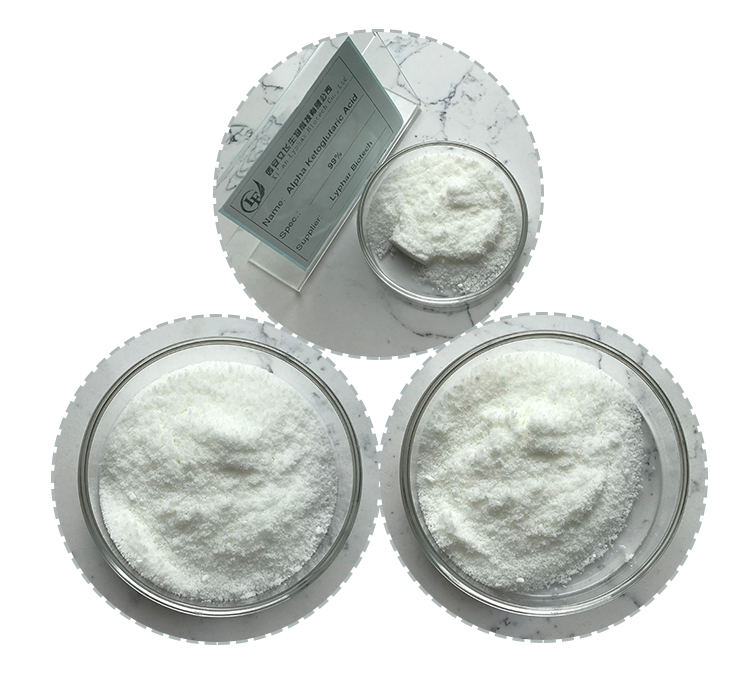The basic component of alpha-ketoglutaric acid (α-Ketoglutaric acid or α-KG) is its chemical structure, which is a key intermediate in the Krebs cycle (citric acid cycle). Alpha-ketoglutaric acid has the molecular formula C5H6O5 and consists of a five-carbon dicarboxylic acid with a ketone functional group.
Here is a breakdown of its components:
1.Carbon Backbone: It contains five carbon atoms.
2.Carboxyl Groups: It has two carboxyl groups (-COOH), making it a dicarboxylic acid.
3.Ketone Group: It has a ketone group (C=O) located at the second carbon atom.
The full chemical structure of alpha-ketoglutaric acid can be represented as:
HOOC-CH2-CH2-CO-COOH
This structure shows:
The two carboxyl groups on the first and fifth carbons.
The ketone group on the second carbon.
The linear chain of five carbon atoms.
This composition allows alpha-ketoglutaric acid to play a crucial role in cellular metabolism, particularly in the Krebs cycle, where it functions as an intermediate that helps in the conversion of nutrients into energy.

Adverse effects of Alpha-Ketoglutaric Acid
Alpha-ketoglutaric acid (AKG) is a compound involved in the Krebs cycle and is often taken as a dietary supplement for various health benefits, such as enhancing athletic performance, supporting metabolic processes, and improving bone health. While it is generally considered safe when taken in appropriate amounts, some individuals might experience adverse effects. Here are some potential adverse effects associated with Alpha-ketoglutaric acid:
1.Gastrointestinal Issues:
Nausea
Diarrhea
Stomach cramps
Bloating
2.Allergic Reactions:
Rash
Itching
Swelling, particularly of the face, tongue, or throat
Severe dizziness
Trouble breathing
3.Electrolyte Imbalance:
Alpha-ketoglutaric acid supplementation could potentially affect electrolyte levels, leading to imbalances that might cause muscle cramps or irregular heartbeats.
4.Kidney Issues:
Although not commonly reported, excessive intake of Alpha-ketoglutaric acid might put a strain on the kidneys, particularly in individuals with pre-existing kidney conditions.
5.Interactions with Medications:
Alpha-ketoglutaric acid might interact with certain medications, potentially altering their effectiveness or increasing the risk of side effects. This is especially relevant for medications metabolized by the liver.

6.Hormonal Effects:
There is limited evidence suggesting that Alpha-ketoglutaric acid might affect hormone levels, particularly in relation to growth factors, though more research is needed in this area.
7.Oxidative Stress:
In some cases, high doses of Alpha-ketoglutaric acid might contribute to oxidative stress, which could damage cells and tissues.
It is important to consult with a healthcare provider before starting any new supplement regimen, especially if you have underlying health conditions or are taking other medications. They can provide guidance on appropriate dosages and help monitor for potential adverse effects.
